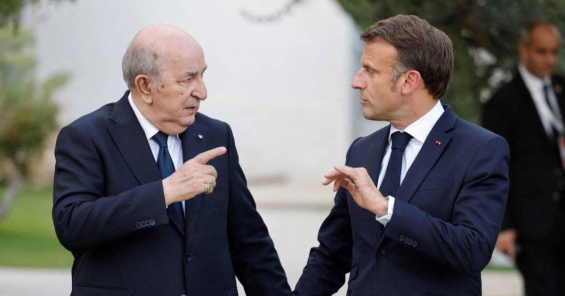Algeria, once roaring with defiance, has now fallen silent. After eight months of open crisis with Paris—triggered by France’s recognition of Morocco's sovereignty over Western Sahara in July 2024—the Algerian president has abruptly reversed course, with no conditions and little explanation.
Just weeks ago, Algiers' fury was unmistakable. In July 2024, a full diplomatic breakdown seemed inevitable for a regime that has treated the Western Sahara issue as a matter of survival for decades. Economic retaliation followed, targeting select French interests in Algeria, while a coordinated influence campaign sought to pressure Paris. Pro-government media figures were mobilized, relentlessly pushing the message that France had to «pay» for its betrayal.
«I will not go to Canossa!»
By October 2024, President Tebboune’s stance toward the Élysée was firm and unyielding. «I will not go to Canossa», he declared when asked about a potential visit to France. The phrase, rooted in medieval history, evokes the humiliation of bowing to an adversary.
 Castle of Canossa in ItalyCastle of Canossa in Italy
Castle of Canossa in ItalyCastle of Canossa in Italy
The Algerian regime’s frustration became clearer when it targeted French-Algerian writer Boualem Sansal. In November, after making statements deemed too sympathetic to Morocco’s stance on Western Sahara, Sansal was arrested upon landing in Algiers and thrown into prison. A writer jailed for expressing an opinion on the history of a disputed territory? The optics were disastrous.
In response, Paris took a tougher line. After months of fruitless exchanges, the Élysée hit back, tightening the judicial net around several France-based influencers aligned with Algiers. A targeted campaign curbed their reach and influence, setting off alarm bells within the Algerian government, which had been stonewalling the repatriation of its nationals in an irregular situation. More concerning still, France began floating the prospect of retaliatory measures, including visa restrictions and a review of bilateral agreements.
Yet another diplomatic U-turn
That’s when the tone shifted. In an interview with Algerian media, Abdelmadjid Tebboune signaled a dramatic climbdown, implicitly acknowledging that France’s stance on the Sahara wasn’t going to change. He paved the way for a thaw in relations, culminating in a «frank» phone exchange with Emmanuel Macron on the occasion of Eid al-Fitr.
The outcome? A return to political dialogue, along with renewed security and migration cooperation—sealed by a joint communiqué that carefully avoided any mention of Western Sahara. The Élysée, however, made a point of highlighting its call for «a gesture of clemency and humanity toward Mr. Boualem Sansal». A presidential pardon now seems inevitable.

But one question remains: How long will Algiers keep undermining its own political and economic interests for the sake of the Polisario?





 chargement...
chargement...













